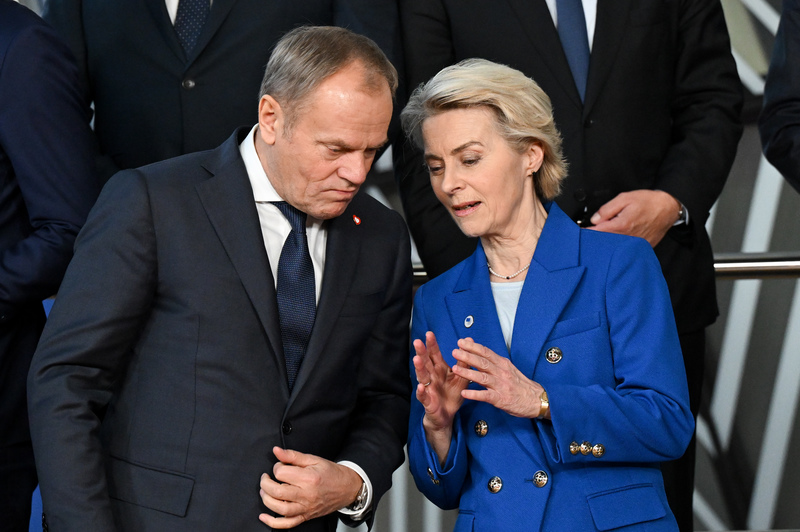Poland assumes the rotating EU Presidency on 1 January and will chair it until 30 June 2025 when it will hand it over to Denmark. During this six-month period, the country will lead the work of the Council of the European Union, building co-operation and agreement between the Member States.
The EU Presidency rotates among the 27 EU Member States every six months. The country holding the presidency guides the work of the Council, organises and chairs meetings, and represents all member states in negotiations with other EU institutions. The current trio of EU Presidencies is made up of Poland (January–June 2025), Denmark (July-December 2025), and Cyprus (January–June 2026).
The Council of the European Union is not to be confused with the European Council which is made up of the heads of state or government of all EU countries and defines the EU’s overall political direction and priorities.
As logo, Poland has chosen the colours (white and red) of its national flag, merged with the letters EU, to underline its commitment to the European Union, its involvement in European affairs, and its ambition to set new directions for EU policies – particularly with regard to EU’s security.
Each new EU Presidency chooses also a motto. The motto of the previous Hungarian Eu Presidency was “Make Europe Great Again.” Before that, the motto of the Belgian EU Presidency was “Protect, Strengthen, Prepare”. Poland has chosen the motto: ‘Security, Europe!’ to underline its determination to “ensure that the security dimension remains a cornerstone of all fundamental European matters”.
Poland takes over the EU Presidency for the second time. Thirteen years after the first Polish presidency (2011), and twenty years after joining the EU (2004), Poland says that it presents an ambitious Presidency programme in extremely difficult times where the EU is facing military and economic challenges as never before.
The programme lists seven priorities: Defence and security, Protection of people and borders, Resistance to foreign interference and disinformation, Ensuring security and freedom of business, Energy transition, Competitive and resilient agriculture, and Health security. The idea is to “mainstream” security and safety in all EU policy areas.
During its presidency, Poland will also face domestic challenges, such as the transition away from the policies enacted by its previous government which was criticized by the EU for undermining the rule of law and the independence of the judiciary. Crucial presidential elections will be held in May to elect a successor to the incumbent president Andrez Duda.
The Brussels Times

